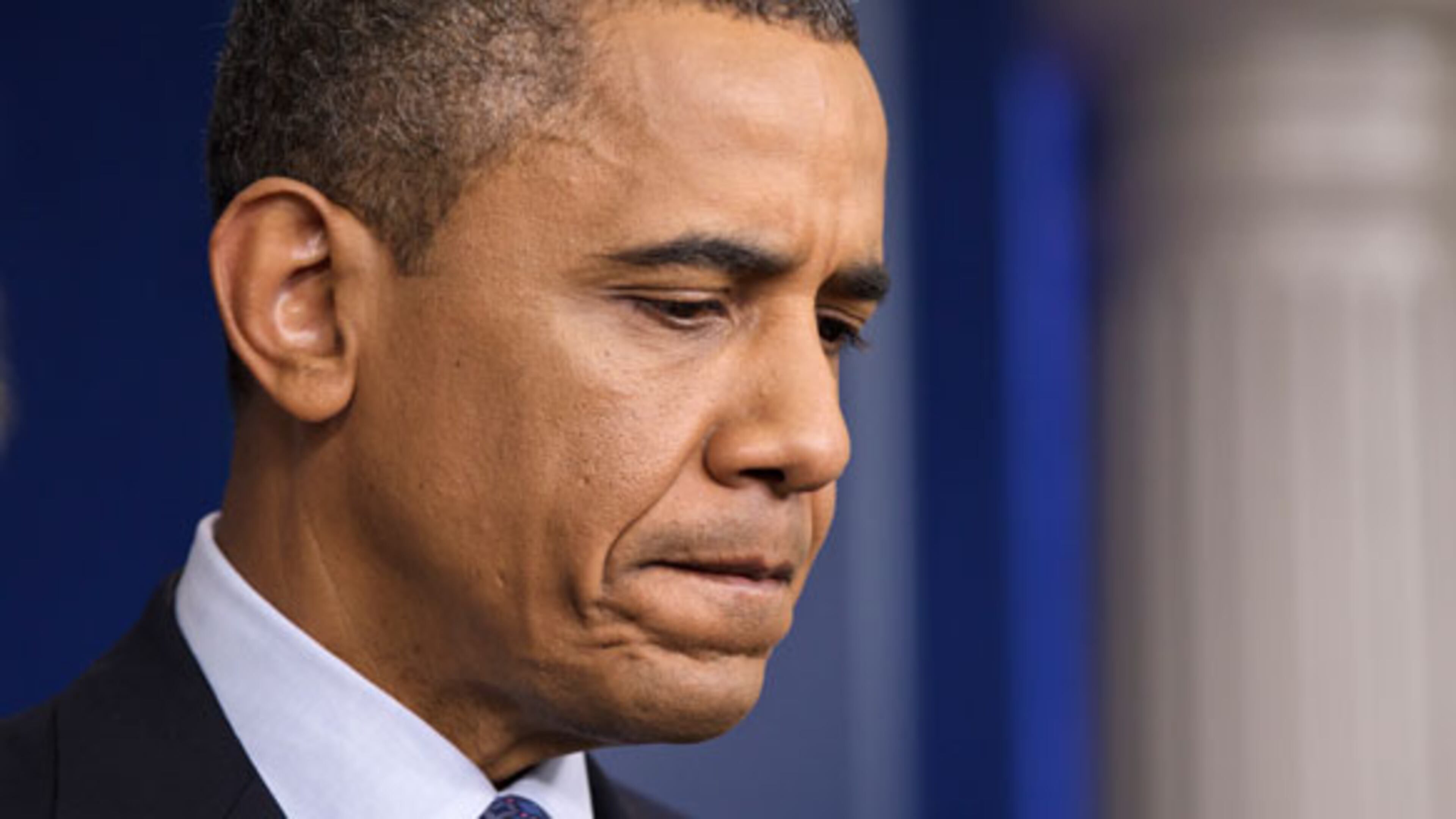Is this 'the most divisive president in history'?

There are lies that you tell to others, and lies that you tell to yourself. The ones that you tell yourself are usually the most destructive.
Take, for example, the oft-told lie among Republicans that "Barack Obama is the most divisive president in history", or something like that. According to that line of thinking, Republicans were prepared to work alongside and compromise with President Obama when he took office in 2009, operating as a loyal opposition, but a dictatorial Obama poisoned the well and made it impossible.
Historians are going to have a damn good laugh at that one, for a variety of reasons:
1.) The premise of the GOP claim seems to be that if Obama didn't exist, or if some other, more reasonable Democrat occupied the White House, then the anger and resentment driving the GOP base also wouldn't exist. As it happens, that premise is easy to test.
Once upon a time, you may remember, Republicans offered up Hillary Clinton as an example of that mythical "more reasonable Democrat" with whom they could work. If "the Hildebeast" wins this election, do you think the anger and resentment that defines the GOP will recede? Did it recede during the presidency of Bill Clinton, the man they voted to impeach, the man they accused of murder, rape and drug-running? Would it disappear if Bernie Sanders were president, or John Kerry?
We all know the answer to that one.
2.) Look at the GOP's own internal dynamics. Surely Obama can't be accused of causing divisiveness within the GOP, where in fact he serves as a unifying figure whom all agree to hate. Yet somehow, anger, resentment and divisiveness are rampant within the party, to the point that even many Republicans fear that the party could break apart.
Republicans hate their own leadership. Did Obama cause that? They ran off John Boehner as speaker -- the man who didn't dare utter the word "compromise" for fear of losing his job -- and they thoroughly despise Senate Majority Leader Mitch McConnell, who boasts a 16 percent job approval rating among Republican voters. Did Obama cause that divisiveness too?
The two leading GOP presidential candidates, Donald Trump and Ted Cruz, have elbowed their way to the front by milking that loathing of the GOP base for their own establishment. And listen to them talk about each other: Trump calls Cruz a cheater who stole the Iowa election, Cruz says Trump would nuke Denmark. Chris Christie likens Cruz and Marco Rubio to grade-schoolers, dismissing Rubio as "the boy in the bubble" who doesn't dare go off the script written for him by his elders. Jeb Bush's Super PAC has attacked Rubio as a weathervane forever shifting in the wind, and for Rubio's supposedly effeminate choice of footwear, and Jeb is routinely dismissed by the rest of his party as a hapless mama's boy.
Is that Obama's fault? The evidence is strong that the fear and anger within the GOP is not caused by some outside agency, but is inherent within the movement to such a degree that they now know no other way of functioning.
3.) Try to imagine the GOP today WITHOUT fear, anger and resentment as animating factors. It could not exist. The talk radio industry, the conservative websites, the faux "Tea Party" pressure groups constantly begging conservatives for donations so they can fend off the pending collapse of Western civilization for one more day -- the entire conservative infrastructure relies on divisiveness as its mother's milk. They are in favor of nothing and against everything, because that's where the money is.
That last point is critical and loaded with irony. We're watching what happens when a political party that worships the profit motive above all else tries to apply that principle by thoroughly privatizing itself. If you think about how the modern GOP now works, it has abdicated all of its major functions -- its messaging, its strategy, its selection of leadership, its goal-setting -- to those whose primary goal is generating dollars for their own profit.
Free-market ideology says that ought to work great. When everybody is doing what is most profitable for themselves, theory says that the goals of the larger entity are somehow served, but it often doesn't work out like that. In this case, the outsourcing of its central functions has left the Republican Party with no entity that is capable of making a decision for the party's greater good and then seeing that the decision is enforced. They are instead driven by what sells -- not what's best for the country or the party or conservative principles, but what sells -- and what sells is anger and resentment.
To compound that irony, the party that stresses the fact that the United States was designed as a republic -- governed by representatives but not directly by the people themselves -- has itself become thoroughly "small d" democratic, subject to the whims and fears of its base without an intermediary to govern them.
That too is not Obama's fault.
